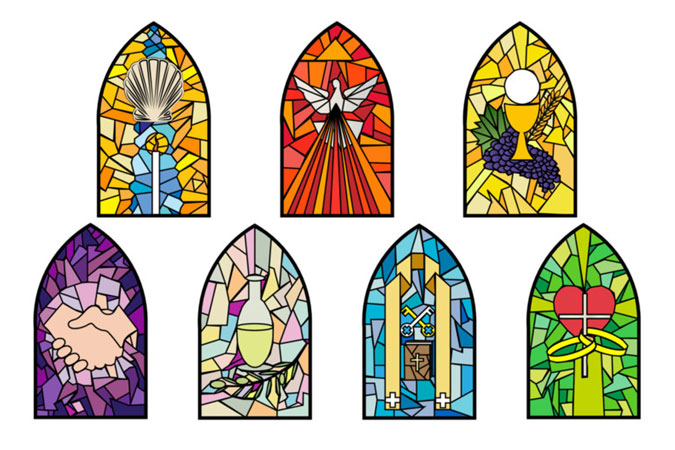
Does a young person try out for a sports team because that person thinks he or she can make the team better or because she or he thinks one can become better by joining the team?
Both!
The experience of joining a team is both formative and expressive. Joining the team forms us into better players, but at the same time, we bring talents to the team that help it to improve.
This dynamic can be applied to the sacraments as well. Our experience of the sacraments is both formative and expressive. In other words, we are formed/shaped by the celebration of the sacrament, and we express/say something about our faith by celebrating this sacrament.
I’ve always said that, when it comes to the sacraments, God does all the heavy work; we just need to receive. This is true. God does all the saving, forgiving, grace-giving, redeeming, anointing, calling, sending, forming, transforming, and so on. We just need to receive or respond to what God is offering. However, in that response, we are indeed expressing ourselves.
A good example of this can be found in our celebration of the Eucharist. Receiving the Body and Blood of Jesus at Mass strengthens and forms us. In addition, our reception of the Body and Blood of Christ expresses two very important things: when we “take and eat,” we are expressing our unity in the Body of Christ; when we “take and drink,” we are expressing our commitment to Christ’s mission. In Scripture, to drink from a cup is an expression of commitment, which is why Jesus prayed in the Garden, “If it is possible, may this cup be taken from me. Yet not as I will, but as you will.” (Matthew 26:39) Jesus also told his disciples, “’You don’t know what you are asking,’ Jesus said. ‘Can you drink the cup I drink or be baptized with the baptism I am baptized with?’” (Mark 10:38)
Yes, in the Eucharist, God is “doing all the work” of redeeming us through the Body and Blood of his Son, Jesus Christ. At the same time, however, we are saying quite a lot by responding, “Amen!” to “This is my Body,” and “This is my Blood.”
Let’s keep this dynamic in mind as we teach and prepare people of all ages for the sacraments. Let’s help them to reflect on how this sacrament is forming them while at the same time helping them to reflect on what they are expressing by receiving this sacrament!
God’s Gift: Reconciliation and Eucharist offers powerful, meaningful lessons to help children and their parents understand, prepare for, and celebrate the Sacraments of Reconciliation and Eucharist.



Sorry to be blunt, but it sounds like cannibalism.
I can understand the metaphorical aspect, of imbibing the power of God as the in-dwelling Holy Spirit but “receiving the Body and Blood of Jesus” (transubstantiation) sounds very odd to me.
Hi Nick,
Actually, the “cannibalism” line is not strange to most catechists as young people will make that very same blunt statement or ask it as a question: “are Catholics cannibals?!!!” It is important to understand that the real presence of Jesus is under the appearance of bread and wine. Studied under a microscope, consecrated bread and wine will still appear as bread and wine. However, transubstantiation is the belief that the bread is truly the Body of Christ (his very being) and the wine is truly the Blood of Christ (his life). The Eucharist is more than metaphor or symbol…it is the real presence of Jesus, the Son of God, present to us through the Holy Spirit. It may indeed sound very odd which is why, when Jesus spoke the following to the crowds of people, many turned away in disbelief:
“Jesus said to them, “Very truly I tell you, unless you eat the flesh of the Son of Man and drink his blood, you have no life in you. 54 Whoever eats my flesh and drinks my blood has eternal life, and I will raise them up at the last day. 55 For my flesh is real food and my blood is real drink. 56 Whoever eats my flesh and drinks my blood remains in me, and I in them. 57 Just as the living Father sent me and I live because of the Father, so the one who feeds on me will live because of me.” (Jn 6:53-57)
Jesus then turned to his apostles and asked, “Do you want to leave me too?”
Indeed, the Eucharist and our understanding of the real presence is “hard to swallow.” (pun intended) And yet, it is the greatest gift we can imagine: God giving himself to us and being present to us, not just “virtually” but “in the flesh!”